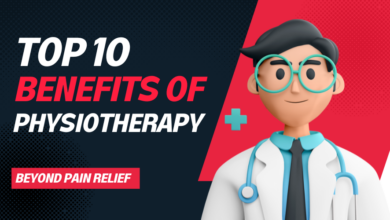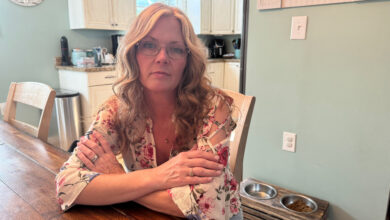
University of Virginia Health System, which for years has sued thousands of patients annually for unpaid bills, said Monday it will cancel a massive backlog of court judgments and liens resulting from those lawsuits dating to the 1990s.
This story also ran on The Washington Post. It can be republished for free.
Combined with reforms UVA announced in 2019, the move is likely to benefit tens of thousands of families and make UVA Health’s collections policies much more generous than those of many hospital systems, said scholars who study health care finance. The decision to wipe out liens that can drain home equity years after a hospital visit is extremely rare, they said.
UVA had been suing patients for decades, many with unpaid bills in the tens or hundreds of thousands of dollars, KHN reported in 2019. Once the health system won cases in court, it could seize wages and the value of patient homes when they were sold. UVA limited its collections lawsuits after KHN’s investigation.
“This is very significant and a much-needed and overdue step,” said Erin Fuse Brown, a law professor at Georgia State University who studies hospital billing. “I don’t know if I’ve heard of that [lien abolition] happening anywhere else.”
But most families who have already surrendered money to UVA as a result of lawsuits or liens will not get their money back.
UVA will release all liens and judgments filed against all households making less than 400% of federal poverty guidelines, or $106,000 for a family of four, which should account for most of them, said Douglas Lischke, the system’s chief financial officer.
“This is a proud moment for us,” he said in an interview. “We want our financial care to be as good as our clinical care.”
“I am proud to see UVA Health System taking real steps to scale back aggressive medical collections and address the pain they’ve caused,” said Virginia Gov. Ralph Northam, a pediatric neurologist.
Doris Hutchinson was surprised two years ago to find a UVA lien related to a relative’s bill on her mother’s Charlottesville, Virginia, home. The medical system demanded $39,000 from the family before the house could be sold. The money was placed in escrow.
Three weeks ago, she learned the judgment would be canceled and the money released.
“I’ll be excited about that,” said Hutchinson, who said she needs the funds to help pay for her grandchildren’s college education and replace income from her husband, who died two years ago. “I’m also happy for everybody else” who gets UVA bill relief, she said.
UVA will also stop blocking enrollment for university students with outstanding balances at the health system, university spokesperson Brian Coy said Monday. Keeping students from completing their education because they owed hospital bills was another practice revealed by KHN.
KHN reported in 2019 that UVA Health had sued patients 36,000 times over six years for more than $100 million, often for amounts far higher than what an insurer would have paid for their care. In response to the articles, the system suspended lawsuits against patients and wage garnishments, increased discounts for the uninsured and broadened financial assistance, including for cases dating to 2017.
The system named an advisory council of UVA officials and community leaders to consider permanent changes. The council delivered recommendations in October.
Like most hospitals, UVA wasn’t using property liens to foreclose on patients’ homes. But it was seizing money owed — plus 6% interest — from home equity when home sales went to settlement.
In response to KHN’s investigation, UVA said in 2019 it would improve financial assistance but continue to use the courts to recover money owed from families making more than 400% of the poverty threshold.
While unusual, UVA’s decision to substantially reduce lawsuits and erase liens stops short of moves recently made by VCU Health, its sister system based at another state university. VCU pledged to stop suing all patients and, in a process taking more than a year in courthouses across Virginia, is abolishing all old judgments and liens regardless of a family’s income.
“This seems like many steps in the right direction” for UVA, said Jenifer Bosco, an attorney at the National Consumer Law Center who specializes in health care. “There is always more that could be done. But providing assistance to families with income of up to 400% of the poverty level is a great step.”
The number of outstanding UVA Health judgments is unknown. For its part, VCU eventually found about 80,000 statewide. In Virginia, liens expire after 20 years, but UVA was taking the trouble to renew claims dating to the 1990s, KHN found.
Canceling them should take more than a year, Lischke said. UVA’s changes to billing and collections, including improvements to financial assistance announced in late 2019, will cost the system about $12 million a year, he said.
UVA’s move is far more beneficial to its patients and its region than other so-called community benefits that many nonprofit hospitals offer to justify their tax-exempt status, said Ge Bai, associate professor at Johns Hopkins Bloomberg School of Public Health.
Instead of testing services or medical education that are often hospital marketing campaigns in disguise, “this action is a concrete effort to relieve the financial burden of the community,” she said. “It also improves mental health. It relieves the stress.”
KHN (Kaiser Health News) is a national newsroom that produces in-depth journalism about health issues. Together with Policy Analysis and Polling, KHN is one of the three major operating programs at KFF (Kaiser Family Foundation). KFF is an endowed nonprofit organization providing information on health issues to the nation.
USE OUR CONTENT
This story can be republished for free (details).



